The star of Son Of A Critch enjoys pushing the envelope. But also takes his craft seriously and sees humour as a tool for “bringing people together and bridging conflict.”
By Jamie Portman
Mark Critch was in the living room in which he had grown up, and the emotions he felt were—in his words—“overwhelming.” Yet his surroundings weren’t real—the family home had been demolished by bulldozers years before. But there he was, eerily in the past.
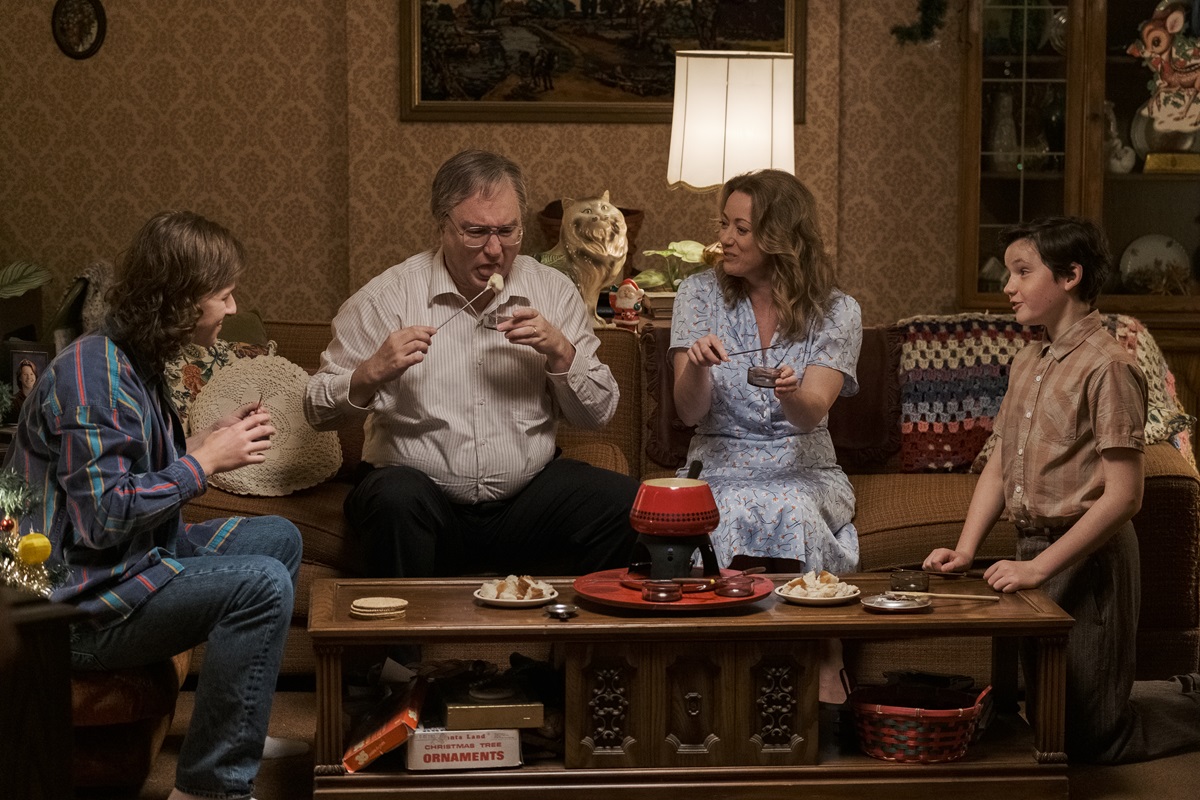
The room had been recreated for a new CBC series, Son Of A Critch, which would look back on his Newfoundland boyhood. And Mark, long a comic fixture on the network’s This Hour Has 22 Minutes, was opening a new career chapter by taking on the role of his own father.
The show became a hit, and Mark is chatting with Fifty-Five Plus shortly after shooting the third season, which hits screens in the New Year. “I think this one will be the best season yet,” he predicts happily. He’s in a thoughtful mood, confessing that he’d been so involved planning that first season that he initially didn’t comprehend the extraordinariness of what was happening.
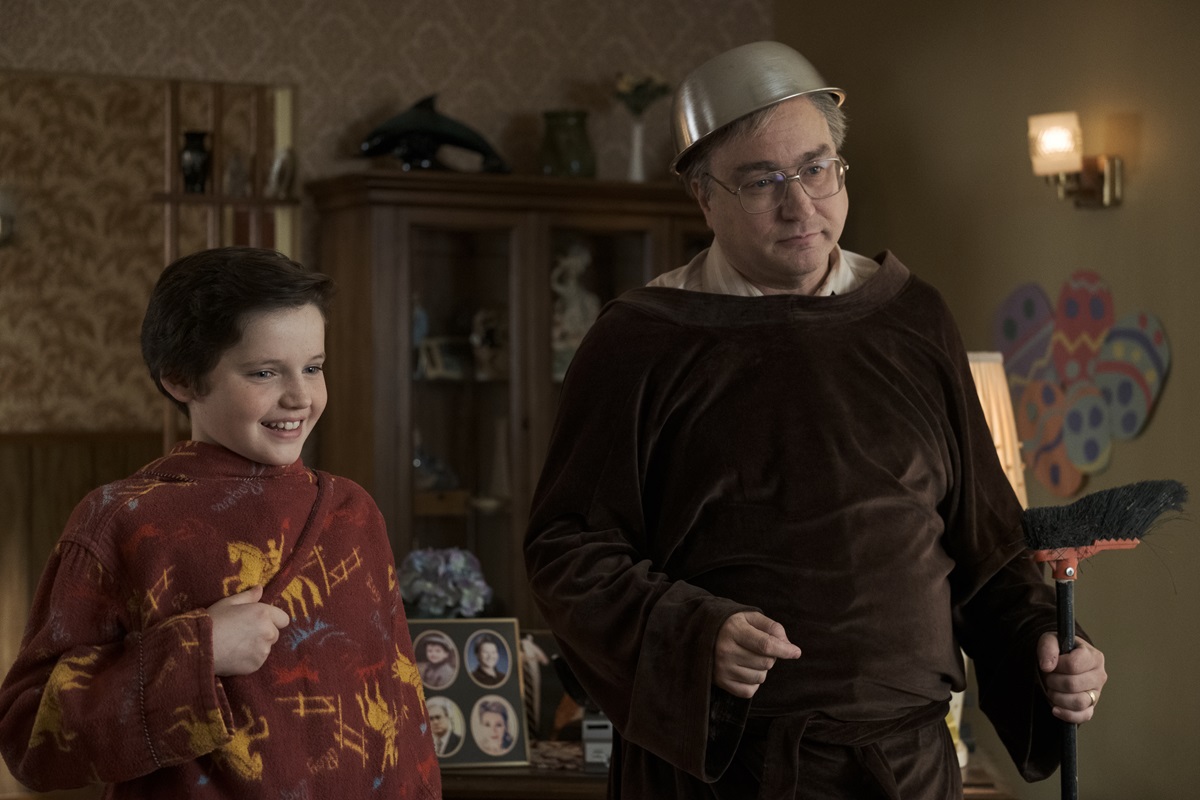
“You’re so busy that there’s not much time for reflection until you find yourself in a quiet moment.” That moment came when he checked out the work of the set designers. “The house was very much like the one I grew up in. It was strange looking around and seeing some of the actual furniture that belonged to my parents. I was back in the past. It was kind of like being in a living dream. I began thinking of people who were no longer with me and feeling a little bit sad.”
But then he was jerked back to the present by the sound of laughter. Benjamin Evan Ainsworth, who plays the young Mark in the series, was sharing a joke with veteran actor Malcolm McDowell, who plays his grandfather. And suddenly, the senior Mark no longer felt sad. “I’m back in this house, which hasn’t existed for a long time, and it’s filled with laughter again.”
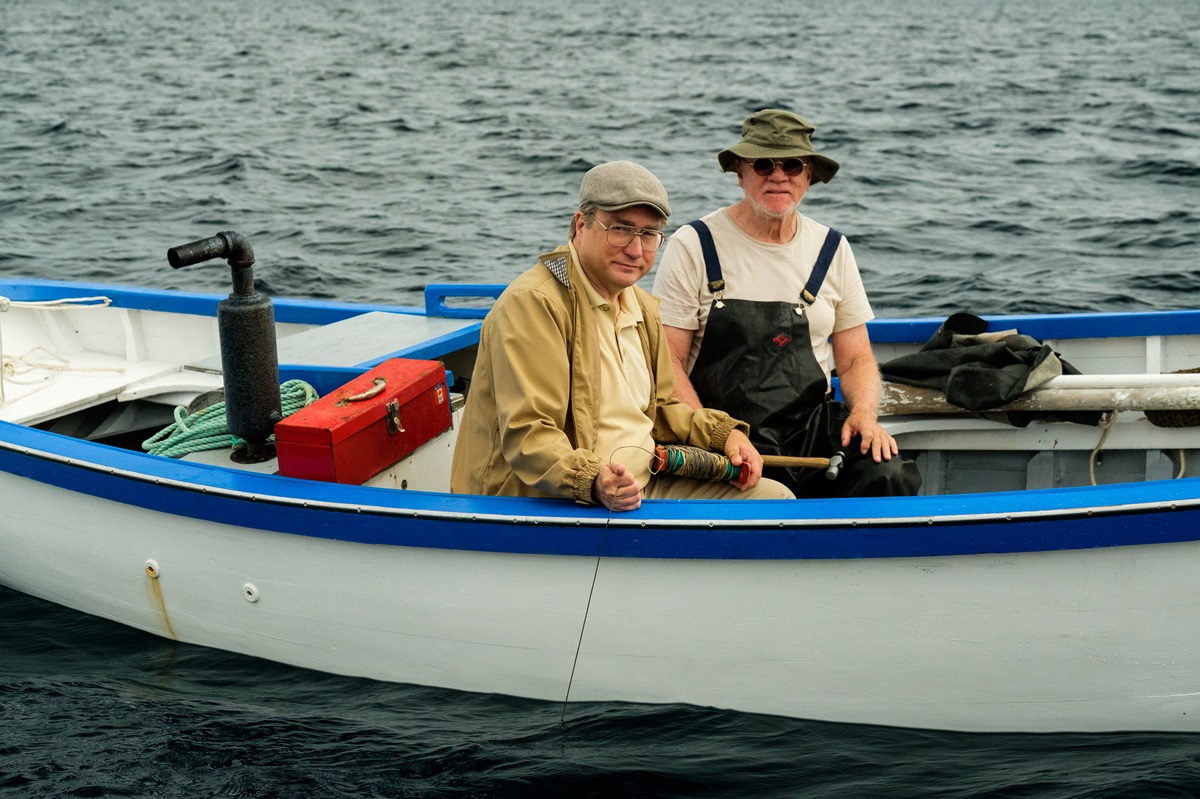
When his best-selling memoir, Son Of A Critch, was published in 2018, he never envisaged a TV version. It was his producer friend and colleague Tim McAuliffe, who had previously worked on The Office and Corner Gas, who saw the potential. “My immediate response was ‘no, no, that’s silly.’ But Tim kept pushing it, so one summer in Montreal we met with various people including Andrew Barnsley, the executive producer of Schitt’s Creek. He wanted to do it, so we put together a proposal—and the CBC wanted it. It went into development and we were off to the races.”
But when colleagues told him he should play his own late father, Mark was in pushback mode again.
“I fought against that a lot, but they wore me down. And now I’m quite happy that I said yes, because it’s been wonderful to act with these other great people. There’s also the fact that it brought me closer to my father because the stories are written from my perspective and my memories, but in playing your dad you really get to think about him and look at things through his eyes. So it’s been a lovely experience.”
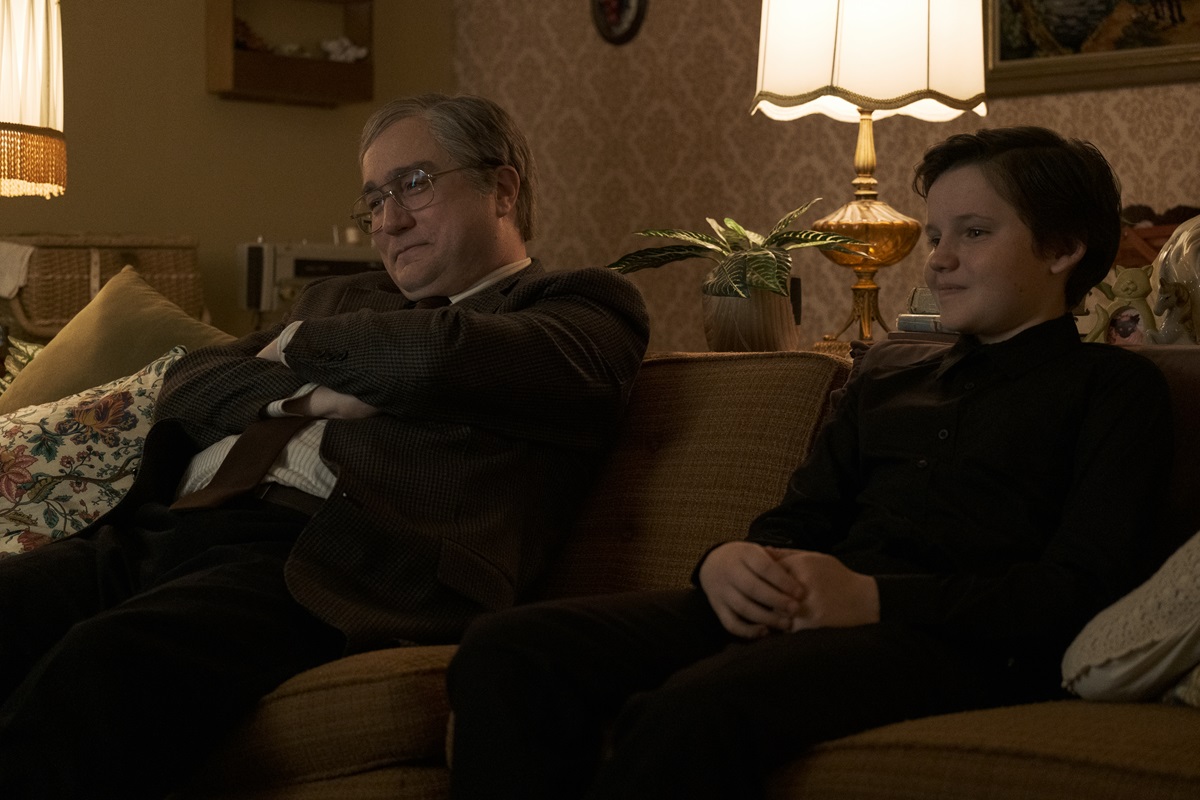
Mark has built a successful career by doing what he loves—being funny. But he’s always conscious of his good fortune. “I’m living in a beautiful country where I’m allowed to walk up to our prime minister and make fun of him,” he once said. Jean Chretien is a big fan. So is Justin Trudeau: Mark has been impishly following the ups and downs of Trudeau’s career for years and says the current prime minister is always ready to laugh at himself.
His comedy can be barbed but it’s delivered with a cheeky affability that’s disarming. Still, he hasn’t forgotten those early struggles to find his own comic voice and style. He feels he was still struggling during the early years of 22 Minutes—especially after the formidable Rick Mercer exited the show, leaving a major gap to be filled. But then, in 2004, the breakthrough came—courtesy of Liberal member of Parliament Carolyn Parrish.
Parrish had been so outspoken in her condemnation of the Bush administration’s invasion of Iraq that the 22 Minutes gang decided to pay her a visit. With the cameras rolling, Parrish obligingly proceeded to stomp on a George W. Bush doll that Mark had brought along.
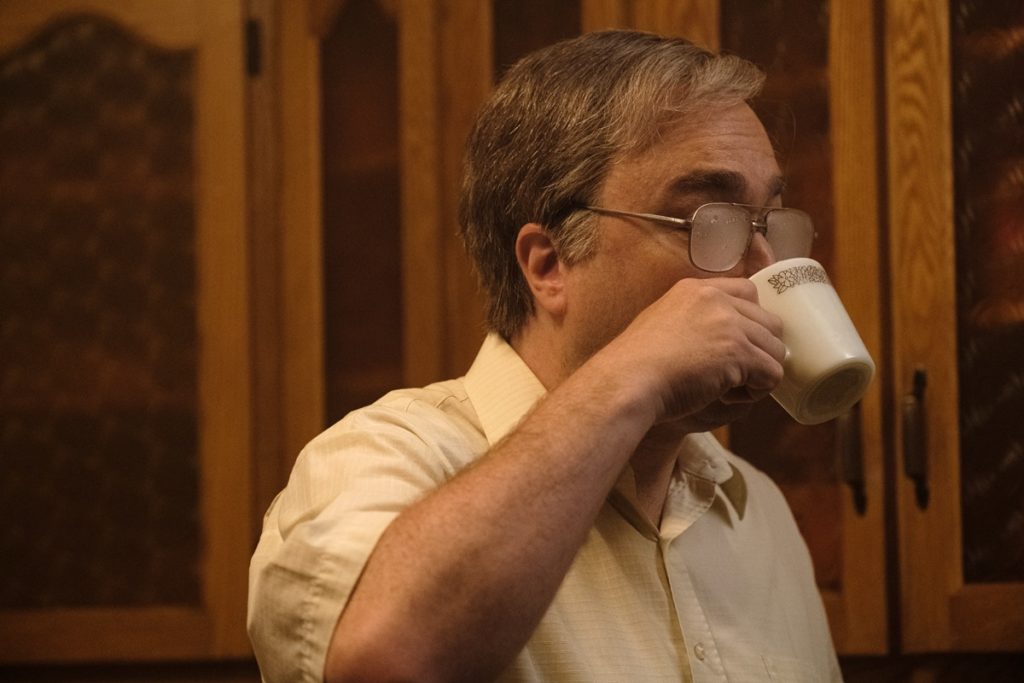
However, before 22 Minutes had the chance to edit and air the sequence it was already making headlines. CBC’s news department got hold of the footage, and a brief clip became a lead item on The National. It also marked the moment when Canadians began talking in large numbers about Mark Critch.
“The genie was out of the bottle, but not in the way intended,” he says now. “That was helpful to me, but I certainly wouldn’t have wished for all the stress Carolyn Parrish suffered. She’s a very nice lady and we keep in touch. And she still has that doll!”
Mark enjoys pushing the envelope. But the guy who once cheekily planted a Canadian flag in Moscow’s hallowed Red Square also takes his craft seriously. He’s not really in sync with the slash-and-burn approach of some comics. “I’ve learned that humor can be a great tool for bringing people together and bridging conflict.”
That seed—it’s integral to the TV series —was planted early in life when he was bullied at school. “To avoid being beaten up, I would resort to comedy and make the guys laugh. Then they would say—‘Oh, I guess he’s all right.’ I’ve always seen the great healing power of comedy. I’ve seen people on their deathbed laugh. Even if laughter only makes you forget your troubles for a millisecond, that’s good.”
Mark and his wife Melissa, a lawyer, still live in Newfoundland, the place that made it all possible.
“But I never intended to be doing TV shows and all that stuff. I only wanted to write and perform my own work—at any level. My dreams were small. I would have been completely at peace doing my own work on stage and on local television.”
So why does a TV show about his own childhood have such resonance? Simple: It helps explain the Mark Critch we know today. He grew up in a warm, loving, sometimes rambunctious household. “But there was always support for what you were going through, for whatever you wanted to do. Everybody would get behind each other, which I think is what most people want from life.”
He values this legacy. He has two adult sons, Will and Jacob, from an earlier marriage. “They’re now on their own journeys and trying to apply the same way of looking at things in their lives.”
Still, he understands the uniqueness of being so totally involved in a TV series about his own past. “The moments that I’m choosing to write about: Why are these the special ones?”
For example, there would be no question that the series would deal with his childhood epilepsy. “When I was about 12 years old, I suffered my first seizure. It happened at a party at a friend’s house, and it was triggered by a strobe light. I came to on the way to the hospital and suffered a temporary memory loss. I wanted to include that story in the series because I understand how important is to share being an epileptic. Whenever I talk about it, I get messages from other people who suffer from it. It’s important for folks who may not know much about the illness to learn that someone on TV has the condition.”
Then, adds Mark: “It’s also a funny story from my own life. Nothing is off limits when you’re mining for jokes!”
For Mark, it’s a gift to make people laugh, and he tries to use it responsibly and wisely. And yes, he has a personal adage. “Follow your dream. Life is short. Be true to yourself.”
The example of his father Mike, a hugely popular broadcaster who died in 2015, has influenced Mark’s brand of comedy. “He was a big star in Newfoundland and Labrador. He always used to say that we should err on the side of kindness, that people need three chances in life because we never know what they’re going through, whether a family member has cancer or they’ve lost their job or may be contemplating suicide. I learned a lot of childhood lessons from him.”
Mark was 15 the first time he performed in public and his father was the inspiration. “My friends and I rented a theatre to do a night-time cabaret. I’d borrowed my dad’s red blazer—all the guys at the radio station wore them—and I did an impersonation of my father on stage and it was a big hit.
“In the upcoming season, we’re recreating that moment. Young Benjamin is up there in that red coat doing the same routine I did when I was 15. All good comedy comes from truth and watching that moment, I felt things had gone full circle.”






